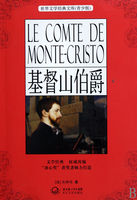In the West the Noblesse was a free and privileged class, proud of its liberty, its rights, and its culture; whereas in Russia the nobles were servants of the State, without privileges, without dignity, subject to corporal punishment, and burdened with onerous duties from which there was no escape. Thus arose in that section of the Noblesse which had some acquaintance with Western civilisation a feeling of discontent, and a desire to gain a social position similar to that of the nobles in France and Germany.
These aspirations were in part realised by Peter III., who in 1762
abolished the principle of obligatory service. His consort, Catherine II., went much farther in the same direction, and inaugurated a new epoch in the history of the Dvoryanstvo, a period in which its duties and obligations fell into the background, and its rights and privileges came to the front.
Catherine had good reason to favour the Noblesse. As a foreigner and a usurper, raised to the throne by a Court conspiracy, she could not awaken in the masses that semi-religious veneration which the legitimate Tsars have always enjoyed, and consequently she had to seek support in the upper classes, who were less rigid and uncompromising in their conceptions of legitimacy. She confirmed, therefore, the ukaz which abolished obligatory service of the nobles, and sought to gain their voluntary service by honours and rewards. In her manifestoes she always spoke of them in the most flattering terms; and tried to convince them that the welfare of the country depended on their loyalty and devotion. Though she had no intention of ceding any of her political power, she formed the nobles of each province into a corporation, with periodical assemblies, which were supposed to resemble the French Provincial Parliaments, and entrusted to each of these corporations a large part of the local administration. By these and similar means, aided by her masculine energy and feminine tact, she made herself very popular, and completely changed the old conceptions about the public service. Formerly service had been looked on as a burden;
now it came to be looked on as a privilege. Thousands who had retired to their estates after the publication of the liberation edict now flocked back and sought appointments, and this tendency was greatly increased by the brilliant campaigns against the Turks, which excited the patriotic feelings and gave plentiful opportunities of promotion. "Not only landed proprietors," it is said in a comedy of the time,"but all men, even shopkeepers and cobblers, aim at becoming officers, and the man who has passed his whole life without official rank seems to be not a human being."
Knyazhnina, "Khvastun."
And Catherine did more than this. She shared the idea--generally accepted throughout Europe since the brilliant reign of Louis XIV.--
that a refined, pomp-loving, pleasure-seeking Court Noblesse was not only the best bulwark of Monarchy, but also a necessary ornament of every highly civilised State; and as she ardently desired that her country should have the reputation of being highly civilised, she strove to create this national ornament. The love of French civilisation, which already existed among the upper classes of her subjects, here came to her aid, and her efforts in this direction were singularly successful. The Court of St.
Petersburg became almost as brilliant, as galant, and as frivolous as the Court of Versailles. All who aimed at high honours adopted French fashions, spoke the French language, and affected an unqualified admiration for French classical literature. The Courtiers talked of the point d'honneur, discussed the question as to what was consistent with the dignity of a noble, sought to display "that chivalrous spirit which constitutes the pride and ornament of France"; and looked back with horror on the humiliating position of their fathers and grandfathers. "Peter the Great,"
writes one of them, "beat all who surrounded him, without distinction of family or rank; but now, many of us would certainly prefer capital punishment to being beaten or flogged, even though the castigation were applied by the sacred hands of the Lord's Anointed."
The tone which reigned in the Court circle of St. Petersburg spread gradually towards the lower ranks of the Dvoryanstvo, and it seemed to superficial observers that a very fair imitation of the French Noblesse had been produced; but in reality the copy was very unlike the model. The Russian Dvoryanin easily learned the language and assumed the manners of the French gentilhomme, and succeeded in changing his physical and intellectual exterior; but all those deeper and more delicate parts of human nature which are formed by the accumulated experience of past generations could not be so easily and rapidly changed. The French gentilhomme of the eighteenth century was the direct descendant of the feudal baron, with the fundamental conceptions of his ancestors deeply embedded in his nature. He had not, indeed, the old haughty bearing towards the Sovereign, and his language was tinged with the fashionable democratic philosophy of the time; but he possessed a large intellectual and moral inheritance that had come down to him directly from the palmy days of feudalism--an inheritance which even the Great Revolution, which was then preparing, could not annihilate. The Russian noble, on the contrary, had received from his ancestors entirely different traditions. His father and grandfather had been conscious of the burdens rather than the privileges of the class to which they belonged. They had considered it no disgrace to receive corporal punishment, and had been jealous of their honour, not as gentlemen or descendants of Boyars, but as Brigadiers, College Assessors, or Privy Counsellors.















